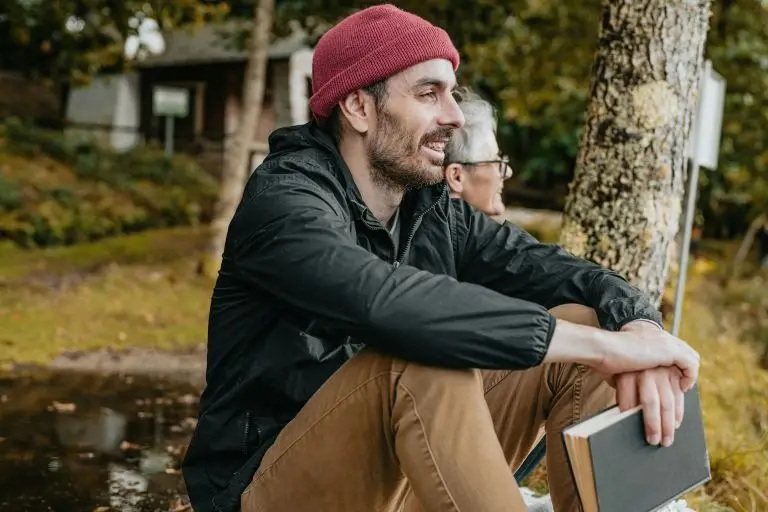The Hidden Power of Everyday Awareness: What the Desert Fathers Taught About Mindfulness
Discover how the early Christian Desert Fathers practised mindfulness long before it became mainstream. Explore the hidden power of everyday awareness to transform your inner life.
Mindfulness is everywhere these days—from wellness apps to corporate wellbeing workshops. But long before it became a buzzword, a group of early Christian mystics known as the Desert Fathers were practising something far deeper than simply “being present”. They lived in the Egyptian and Syrian deserts in the 3rd and 4th centuries, seeking silence, solitude, and God. And in doing so, they uncovered a form of everyday awareness that’s just as relevant today as it was then.
So, what did these spiritual pioneers know about mindfulness that we can still learn from? Let’s explore the hidden power of everyday awareness through the eyes of the Desert Fathers.
What Is Everyday Awareness?
Before diving into the desert, let’s ground ourselves. Everyday awareness isn’t just about slowing down or noticing your breath—although those things help. It’s about developing a kind of inner stillness that allows you to be fully present in your life, no matter what’s going on externally.
It’s the simple, sacred act of being aware—of your thoughts, your actions, the way you wash the dishes, or speak to a stranger. And the Desert Fathers were masters of it.
A Life of Watchfulness
One of the core teachings of the Desert Fathers is nepsis—a Greek word meaning “watchfulness”. It refers to a state of inner attentiveness. Not in a tense or anxious way, but a quiet alertness that tunes into the movements of the heart.
For the Desert Fathers, this wasn’t just a mental exercise. It was the foundation of spiritual life. They believed that by becoming aware of our inner world—our thoughts, temptations, desires—we could cultivate purity of heart and open ourselves to divine presence.
Abba Poemen, one of the most respected of the early monks, said:
“Do not give your heart to that which does not satisfy the heart.”
To know what truly satisfies, we have to watch. We have to listen deeply, not just to the world, but to our own inner life. That’s mindfulness, in its original contemplative form.
Silence, Solitude, and the Sacred Ordinary
The Desert Fathers didn’t practise mindfulness in yoga studios or guided sessions—they practised it in caves, huts, and small monastic cells. But what’s remarkable is how deeply their insights resonate with modern life.
They taught that solitude and silence weren’t escapes from the world but paths into deeper awareness. Silence, for them, wasn’t just the absence of noise. It was a doorway into the sacred. A space where the noise of the ego fades, and the still small voice within becomes clearer.
Even in solitude, they paid attention to the most ordinary of things—sweeping the floor, baking bread, tending the garden. These were not chores, but opportunities to practise presence.
Mindfulness, in this tradition, isn’t about zoning out. It’s about waking up to the sacredness of each moment, no matter how simple.
The Power of Repetition
One thing the Desert Fathers did that may seem odd to us is repeat short prayers constantly—sometimes hundreds of times a day. A common one was, “Lord Jesus Christ, have mercy on me.”
Why?
Because repetition anchors awareness. Much like a mantra in Eastern practice, these short prayers helped bring the wandering mind back to the present moment. They served as a way to pray without ceasing—not by effort, but by habit.
Today, you might use your breath as your anchor. Or a phrase like “Be here now.” But the principle is the same: use a simple, repeated action to ground your awareness in the moment.
Facing the Inner Desert
One of the more uncomfortable truths the Desert Fathers teach us is this: when we get quiet, we don’t always find peace. Sometimes we find restlessness, doubt, even fear. But they didn’t see this as a failure. They saw it as the work.
Abba Anthony, often called the father of monasticism, famously said:
“Whoever has not experienced temptation cannot enter the kingdom.”
In other words, when you start paying attention to yourself—really paying attention—you may not always like what you see. But it’s through this watchful honesty that transformation happens.
Modern mindfulness often avoids this edge. It focuses on stress relief and calm. But the Desert Fathers remind us: real mindfulness includes the hard stuff too.
Making It Real in Modern Life
So how can we bring these ancient practices into our 21st-century world?
You don’t have to move to the desert (though a digital detox might help!). Here are some gentle ways to explore the Desert Fathers’ approach to everyday awareness:
-
Start your day in silence – Even five minutes without phone or media can create space for sacred awareness.
-
Use short, repeated phrases – Try “peace be still” or “I am here” throughout your day to anchor attention.
-
Practise mindful chores – Washing up, walking the dog, or folding laundry can become moments of grace if done with intention.
-
Watch your inner reactions – Notice when you get triggered, distracted, or restless. Bring gentle attention to these moments, not judgement.
-
Embrace solitude – Make time each week to simply be with yourself—no distractions, no agenda. Just listen.
Begin your sacred inner journey: Get your free 7-Day Sacred Stillness Challenge and start today
Why It Matters
The teachings of the Desert Fathers offer more than quaint spiritual nostalgia. They offer a way of being that cuts through the noise of modern life. A way of slowing down, not just to feel better, but to live truer.
They invite us to recover the hidden power of everyday awareness—not as a trendy wellness hack, but as a radical path to inner freedom.
Because when we learn to be present to the smallest things, we become open to the greatest mysteries. As Abba Moses once said:
“Sit in your cell, and your cell will teach you everything.”
The modern world doesn’t offer many cells. But your kitchen table, your commute, your garden, even your inbox—these can all become places of stillness, if you’re paying attention.
Bonus Resources
Why not treat yourself to a Meditation Retreat in the beautiful Devon Countryside?
This post may also interest you: Why Loving-Kindness and Compassion Feature in Mindfulness Practices
Best Wishes,
David.
© D. R. Durham, All rights reserved, 2025.




